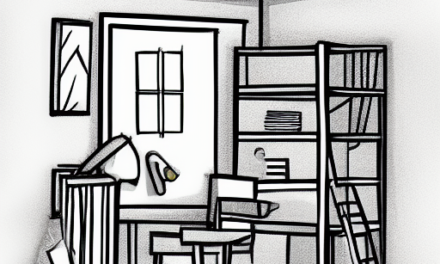Study organisation is a key factor to being successful and efficient at studying. It’s important to have your notes stored in the right place and don’t waste time hunting for them. You can use digital or physical filing systems to make it easier for you to keep track of your notes. Paper-based filing systems can be as simple as creating a folder to hold your notes by subject or subheadings.
Plan your week
It’s important to plan your study week well in advance. Ideally, you should plan for two hours of study time per hour of class. However, you may need more or less time. Once you’ve determined how much study time you need for your class, you can add five to ten more hours to your schedule. This may mean adjusting other activities in your life, such as social activities or tutoring. Using a calendar can also help you plan your time.
After each class, you should write a to-do list for the next week. It’s helpful to use a calendar or planner to list all the activities that you’ll be completing during the week. Color-code them so that you’ll know when they should be accomplished and when you’ll have free time.
A weekly plan will help you prioritize your tasks and manage your workload efficiently. This will also help you develop a sense of accomplishment. It’s also helpful to take time on Sunday evenings to review your goals. You’ll be able to see what you need to do the following week, and what you can skip. This process can also reduce the stress that comes with a hectic week.
Another way to plan your week for study is by using an electronic calendar or weekly planner. Then, block out specific hours of each day for studying. This will help you organize your time for class and work. When using an electronic planner, make sure you keep the calendar up to date.
Organize your notes
Organizing your notes when studying can make the process much easier. Not only will it help you find the notes you need when studying, it will also make it easier for you to review them. This way, you will be able to reinforce the concepts you’ve learned. Using flashcards can be a simple way to make your notes more organized. Fill index cards with vocabulary, key concepts, and details about the topics you’ve studied.
Another way to organize your notes is to write down personal insights or ideas. These can be as short as a sentence, a diagram, or a simple sketch. For instance, if you’re learning about the history of the guitar, you can draw shapes to represent the years that it was invented and other details about the instrument. Writing down your personal insights will make it easier for your brain to process and recall information when you review your notes.
It’s also a good idea to divide your notes by class. This way, you can find them much faster. Make sure to label the pages with the chapter or lecture titles. Leave enough space between the notes so that you can go back to them when necessary. Then, add headings that will help you focus on specific topics. Headings will help you identify which topics are important and what you might want to follow up on later.
While taking notes is a valuable tool, you should know how to organize them effectively. The best way to do this is by creating a system that fits your study style and habits. Organizing your notes is easier than you might think. Just follow these six steps and you’ll be able to make notes that work for you.
Set a deadline
Setting a deadline is an effective strategy for achieving goals and managing time efficiently. Definite timeframes will prevent you from procrastinating and ensure that you finish your work on time. You should also consider the goal you’re attempting to accomplish and whether a deadline is realistic for that goal.
A deadline will help you stay focused and avoid getting too impatient with yourself. It will also help you rejuvenate yourself and prepare mentally for the next challenge. Often, a person with no deadline will become lazy and unfocused and this will hinder the progress of their studies. It can be beneficial to set a deadline and reward yourself for completing the task before the deadline.
When completing a project or studying for a major exam, it’s helpful to set a deadline. This will motivate you to study harder and more thoroughly. It will also help you develop teamwork skills. When you have a deadline, you and your team members will have a shared goal to meet. As a result, everyone will be more focused on the task at hand.
Another reason to set a deadline is because it will give you a sense of accomplishment. If you’re not able to meet your deadline, ask for help. By writing down your goals and deadlines, you’ll be more likely to stick to them. It will also help you to get your work done faster.
Prioritise your to-do list
To make your to-do list shorter, prioritise tasks that take less than two minutes to complete. This will free up more time for higher-priority tasks. Another helpful way to shorten your list is to delegate. If someone else can do the task, delegate it to them.
Prioritising tasks helps you determine which tasks are most important and which ones aren’t. You may even want to grade each task from A (very important) to F (lower priority). It is important to complete the tasks at the top of your list first. You may also want to consider using software to create and manage your to-do list. This way, you can access it from any location and sync it with your smartphone.
Another way to prioritise your to-do list is to work on one task at a time. This will help you to manage your time more effectively. Remember that you can only do so much in a day. You must also allow for distractions and be realistic in your priorities.
You can also make a prioritisation matrix to identify the tasks that need immediate attention. Make a list of tasks, assign a priority number to them, and start with the highest priority tasks first. After that, move onto the next highest priority task. This way, you can complete more important tasks later on, when you’ve got less pressing responsibilities.
Avoid distractions
Avoiding distractions is vital for study success. There are several ways you can do this. One of the easiest is by putting away the obvious distractions such as your phone, internet, and social media. By shutting these down or putting them on airplane mode, you can focus without them interfering with your study. You can also set your phone to do not disturb mode and tell friends and family that you are busy working.
If you are studying in a public place, such as a library, you may be distracted by people talking to each other or texting. Identify the specific distraction that is interfering with your study and try to avoid it. Remind yourself to overcome this distraction by telling yourself that you need to focus and not look at it. Repeat this process every time you notice yourself distracted.
Distracting activities are also dangerous for study. You may not have to avoid them altogether, but they can be a huge distraction. It’s important to have a clear, uncluttered workspace in which to study. If your study area is free of distractions, you’ll have a better chance of achieving success.
Another way to avoid distractions when studying is to use noise-canceling headphones. Although some kinds of music can distract you, instrumental or classical music can improve concentration. Some students work better with a low level of background noise, while others can do well with complete silence. It’s important to understand how you work and test different environments to see which works best for you.
Use a planner
Using a planner to organize your study time is a great way to make sure you’re not forgetting anything. A planner can help you make a schedule and keep track of due dates and tasks. It also helps you schedule personal time. Studies show that the best way to study is to schedule short study sessions over a few days. The planner doesn’t need to record every task you need to do, but it can help you keep track of what’s important and what’s not.
Many students assume they’ll remember to complete an assignment or task, but this is not the case. Memory tends to work best when there are physical cues to remind us of important dates. Using a planner to plan out your “DO” dates can help you complete tasks more efficiently.
A student planner is also an excellent tool for note-taking and goal-setting. It allows students to write down important information on a daily basis, enabling them to prepare for class more effectively. Teachers can even use the planner as an exit ticket, and review what students have written in it before class.
Another great feature of a planner is its ‘Projects’ section. In this section, you can categorise your assignments by deadlines, steps, and other criteria. Having a system for these things will help you to get the best results in your studies.













